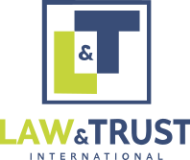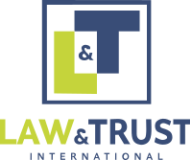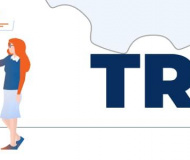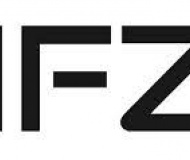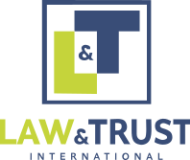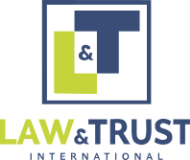Substance (real presence) in Estonia helps to prove the legality of a company
News:
Date added: 19.11.2018
Tax planning in the world business is aimed at the highest possible optimization. The concept of Substance became an innovative doctrine in the world of tax optimization and proved to be very useful. Modern tax schemes are trying to integrate into the existing tax system of the country of registration as much as possible, in order to remain within the bounds of law and meanwhile to reduce tax expenses.
The Baltic countries successfully use their geographical position between Western Europe and Russia, attracting investors from different countries. Also, the Baltic is the border of the European Union. The Baltic Sea washes the coast of Estonia, which provides a logistic link both by water and land. An opportunity to do business in Estonia attracts a lot of investors. Given the tendencies in a number of countries to tighten the domestic legislation on the conduct of business, Substance in Estonia is becoming relevant.
The tax optimization market is cluttered with such on-trend phrases as «offshore», «deoffshorization», «automatic exchange of tax information», «state pressure on banks» etc. Global information flows force company owners to be engaged in a detailed tax planning, to look for new and improved ways to reduce the expenses of doing business. One of the solutions is to use the registration of companies with the simplest documents and the appointment of a Nominee Director. Companies with such characteristics may fall under suspicion of monitoring services.
The modern business industry has worked out such concepts as «Real substance», i. e. «actual presence», «Economic substance», the meaning of which is «economic essence».
But what is «substance» in a single concept? Let us take a look at the notion.
The above-mentioned terms were incorporated into the tax laws of some countries as an unconditional part of the protection of national interests. Lawyers use these terms for argumentation, or even as a methodology in litigation related to tax disputes. In some cases, when the tax law rules were not violated, the use of these methods allows to reach a court decision not in favour of taxpayers. The practical side is expressed in the special qualification of a legal act. In other words, no matter how the taxpayers qualify a separate transaction, these doctrines make it possible to re-qualify the transaction according to their real nature.
Literally, «substance» means the real presence of a company in a country of registration as evidence of actual business management.
What risks can Substance in Estonia eliminate?
The doctrine of Substance in Estonia allows minimizing the threats associated with income generation by the final benefit recipient. If some rules of international agreements are valid only in relation to the beneficial owner of a business.
Substance in Estonia allows you as a tool to level the possibility of applying sanctions if your income is of a dubious or unjustified origin. This is relevant in cases where the actual purpose of financial operations conducted is to obtain benefits in order to avoid paying taxes. If the management of the account of a country of registration has signs of participation in tax schemes, this may lead to negative consequences in jurisdictions where this is provided by law. There is an agreement signed between a number of countries regarding the avoidance of double taxation. At the same time, in the legislative field of a country itself, there may be a condition for obtaining the status of a resident at the place of the actual management of the company.
What benefits does Substance in Estonia provide to risk recipients?
The main advantage which can be derived from the doctrine is the fact that controversial points may be resolved at the stage before the litigation, or even at the check-up stage by the fiscal services, without reaching the court proceedings. Substance in Estonia can justify the economic feasibility of certain financial transactions, as well as demonstrate their business purposefulness.
There are no unified criteria and features of a real presence of a company in order to determine Substance in Estonia. They differ depending on the specific situation and the current tax legislation in Estonia at the time of the audit.
It is important to consider what exactly is the object of attention of the tax authorities. Among those the following should be mentioned:
- Office space. This may be your own office or a rented room;
- Appropriate organizational facilities, equipment, computers, furniture must be in the office depending on the specifics of the company;
- A functioning website of the organization is must; there should be attributes due to which it can be identified as belonging to the company. It is important that it contains an e-mail with the domain of the company's registration area;
- Contact information. A phone number, fax, other contact information regarding the company relate to it;
- An open functioning bank account. It must be registered in the country of residence of a company and its management is also carried out on the spot. This account carries out transactions, money transfer transactions etc.;
- Managing Director. It is important that this is not a Nominee Director, but a person who is involved in the activities of a company and is legally responsible for its affairs. This is an extremely important aspect of Substance in Estonia;
- Other staff. This is necessarily a qualified, local accountant who keeps records and stores the document flow. Other professionals whose duties apply to the specifics of a company;
- Accounting entries for payroll, social contributions and other tax costs, including income tax, if such are provided by law.
All these criteria are conditional and are determined only by the monitoring services of the country in which a company is registered. Depending on the specific business climate, these criteria may be added or eliminated.
A natural consequence of such regulatory requirements for the implementation of the actual presence - substance - is an increase in the material cost of maintaining a registered company. However, it is important to understand that there are optimal ways to optimize and simplify business, while maintaining the necessary criteria acceptable to the fiscal authorities.
It is important to take into account all the subtleties of Estonian legislation to choose the most profitable optimization variant given the specifics of your business. Lawyers of Law&Trust International always monitor all innovations and developments in the legal field of Estonia, so that your business could develop safely and without the risk of losing profits. For order service go to link: click here


